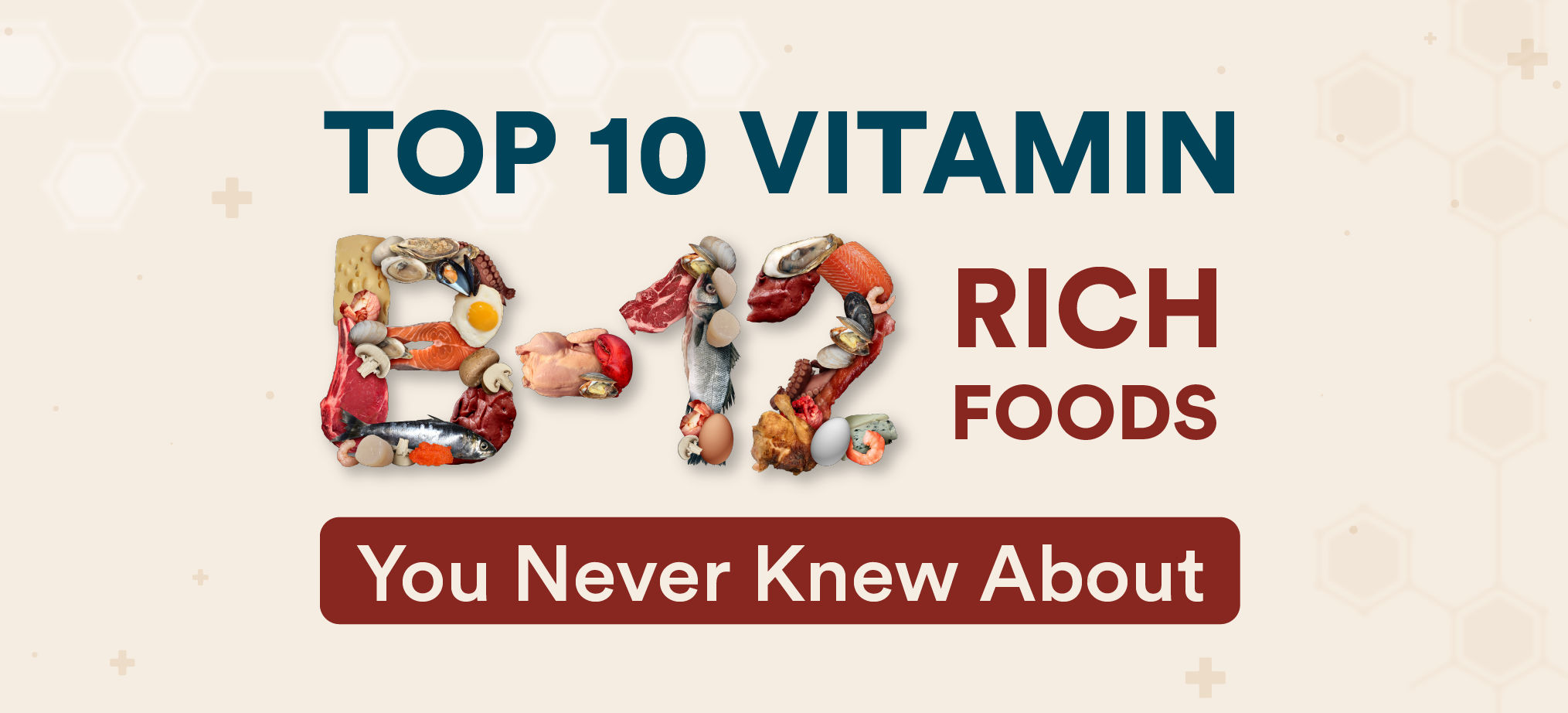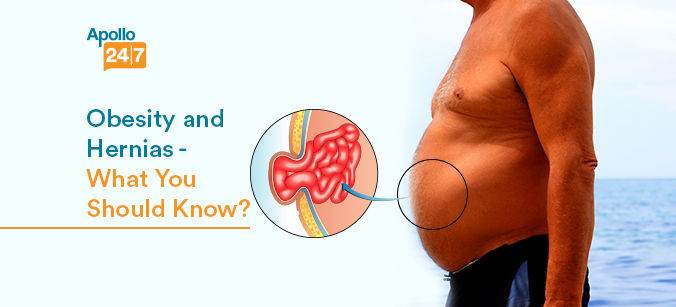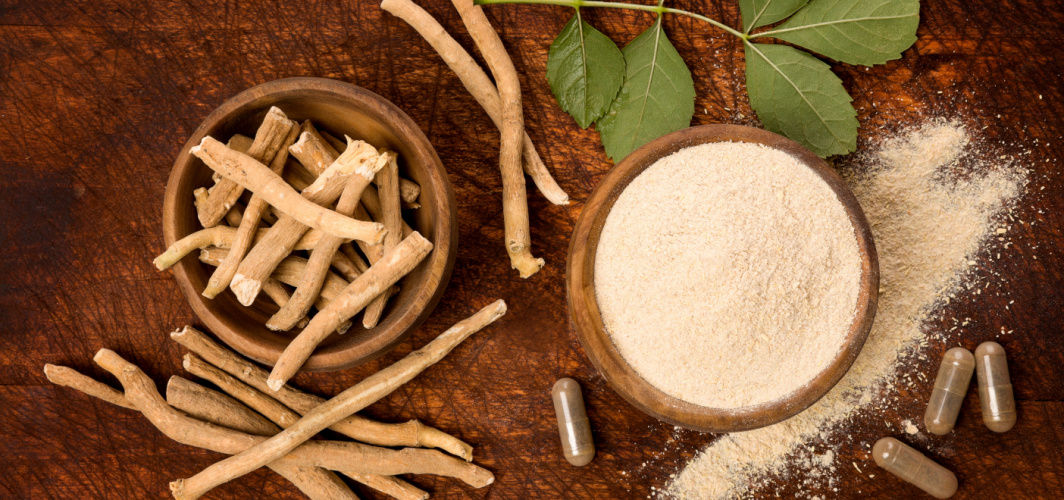General Health
Top 10 Sources Of Vitamin B12-Rich Foods
9 min read
By Apollo 24|7, Published on - 12 September 2023, Updated on - 07 August 2024
Share this article
0
0 like

Vitamin B12 is a crucial nutrient that plays a vital role in the body. It is essential for maintaining a healthy nervous system, producing red blood cells, and converting food into energy. Unfortunately, many individuals in India are deficient in this important vitamin. In this article, we will explore the importance of vitamin B12 and the benefits of consuming vitamin B12 foods. By incorporating these foods into your diet, you can ensure that your body receives an adequate amount of vitamin B12 to support optimal health and well-being.
What is Vitamin B12 Deficiency?
Vitamin B12 deficiency, also known as cobalamin deficiency, is a condition that occurs when there is an insufficient amount of vitamin B12 in the body. Vitamin B12 is an essential nutrient required for various physiological processes, including the formation of red blood cells, proper functioning of the nervous system, and the synthesis of DNA.
1. Causes of Vitamin B12 Deficiency
- Inadequate Dietary Intake: Consuming a diet low in Vitamin B12 foods can lead to deficiency. Vegetarians and vegans are particularly at risk as most natural sources of Vitamin B12 are animal-based.
- Impaired Absorption: Certain medical conditions like pernicious anaemia, celiac disease, or Crohn's disease can hinder the body's ability to absorb Vitamin B12 effectively.
- Medications: Long-term use of certain medications, such as metformin or proton pump inhibitors, can interfere with Vitamin B12 absorption.
2. Risk factors for Vitamin B12 deficiency
- Age: As we age, our body's ability to absorb Vitamin B12 decreases, making older adults more prone to deficiency.
- Gastrointestinal surgeries: Individuals who have undergone gastrointestinal surgeries may have a reduced ability to absorb Vitamin B12.
- Alcoholism: Excessive alcohol consumption can inhibit the absorption and utilisation of Vitamin B12.
3. Symptoms of Vitamin B12 Deficiency
Symptoms of Vitamin B12 deficiency may include:
- Fatigue and weakness
- Pale skin
- Shortness of breath
- Dizziness or lightheadedness
- Tingling or numbness in hands and feet
- Poor memory and confusion
- Mood changes
Top 10 Vitamin B12-Rich Foods
Vitamin B12 is unique among vitamins in that it is primarily found in animal-based foods, making it a critical nutrient for those following a vegetarian or vegan diet. We have included the top 10 Vitamin B12 foods to help you meet your daily needs.
1. Offal
Offal refers to the internal organs and entrails of animals that are typically consumed as food. It may include the tongue, heart, kidney and liver. The liver is one of the richest sources of vitamin B12 and is widely consumed in Indian cuisine.
Benefits of Liver
The liver, whether it's chicken, mutton, or beef, is packed with essential nutrients such as:
- Iron
- Zinc
- Protein
Suggestions for Recipe
The liver can be prepared in various ways to suit your taste buds.
- Liver fry: Heat oil in a pan, add chopped onions, ginger-garlic paste, and spices like turmeric, red chilli powder, and garam masala. Add liver pieces and cook until tender.
- Liver curry: Make a paste of onions, tomatoes, ginger-garlic paste, and spices. Heat oil in a pan, add the paste and cook until it thickens. Add liver pieces and cook until done.
- Liver masala: Marinate liver pieces with turmeric powder, red chilli powder, ginger-garlic paste, and salt. Heat oil in a pan, add chopped onions and sauté until golden brown. Add the marinated liver pieces and cook until they are well cooked.
2. Shellfish
Shellfish is another vitamin B12 food that can be easily incorporated into your diet. Whether you enjoy prawns, clams, mussels or oysters, these delicious shellfish are not only tasty but also packed with essential nutrients.
Benefits of Shellfish
- Shellfish, such as clams and mussels, are particularly rich in vitamin B12, providing more than 100% of the recommended daily intake per serving.
- They are also a good source of iron, protein, omega-3 fatty acids and zinc.
- Shellfish aids in preventing megaloblastic anaemia, a condition characterised by a reduced number of larger-than-normal red blood cells.
Suggestions for Recipe
- Stir-fried prawns with garlic and vegetables
- Grilled or steamed mussels with lemon and herbs
- Spicy Goan-style clams curry
- Tandoori oysters with a squeeze of lemon
3. Fish
Fish is an excellent source of Vitamin B12, along with various other nutrients. It is a popular choice in Indian cuisine and offers numerous health benefits.
Benefits of Fish
Fish plays a crucial role in maintaining healthy nerves and red blood cells. It also contains omega-3 fatty acids, which are known for their anti-inflammatory properties and heart health benefits. Additionally, fish provides high-quality protein and essential minerals like selenium and iodine.
Consuming fish regularly can help enhance brain function, reduce the risk of heart disease, improve eye health, and support healthy skin.
Suggestions for Recipe
You can enjoy fish in various ways:
- Grilled
- Baked
- Steamed
- Made into curries
Some popular Indian fish dishes include tandoori fish tikka, fish fry, and fish curry.
4. Eggs
Eggs are not only a delicious and versatile food but they also provide nutritional benefits. There are many types of eggs consumed worldwide such as chicken eggs, duck eggs, quail eggs, and more.
Benefits of Eggs
One large egg contains approximately 0.6 micrograms of Vitamin B12, making it a convenient and accessible option to include in your diet.
Additionally, eggs also provide other important nutrients like protein, choline, and various vitamins and minerals.
Suggestions for Recipe
- Scrambled eggs with vegetables: Add your favourite vegetables like bell peppers, spinach, and mushrooms to scrambled eggs for a nutrient-packed breakfast or lunch.
- Egg salad: Mix boiled and mashed eggs with mayonnaise, mustard, and herbs for a tasty sandwich or salad filling.
- Vegetable frittata: Combine beaten eggs with your choice of vegetables and bake until firm for a satisfying and nutritious meal.
5. Milk
The most common source of milk comes from cows, sheep and goats. Almond and soy milk are becoming popular as alternative sources of milk for lactose intolerance.
Benefits of Milk
Milk contains important nutrients like:
- Calcium that helps in bone health
- Potassium which reduces blood pressure
- Vitamin D that strengthens the bone
Suggestions for Recipe
- Start your day with a glass of milk or a bowl of yoghurt topped with fruits and nuts.
- Use milk to make smoothies and milkshakes or as an ingredient in various Indian desserts like kheer or rabdi.
6. Fortified Plant-Based Products
Fortified plant-based products are a great option for individuals following a vegetarian or vegan diet, as they provide a convenient source of Vitamin B12. Fortified plant-based products include foods like soy milk, almond milk, and breakfast cereals.
Benefits of Fortified Plant-based Products
They provide essential nutrients like:
- Protein
- Calcium
- Vitamin D
Suggestions for Recipe
- Enjoy fortified plant-based milk on their own or use them in smoothies, coffee, or cereal.
- Incorporate fortified breakfast cereals into your morning routine by adding fresh fruits and nuts for added flavour and nutrition.
- Try cooking with plant-based meat alternatives that are fortified with vitamin B12, such as tofu or tempeh.
7. Meat
Meat is a fantastic source of vitamin B12 for non-vegetarians. It comes from the flesh of animals and provides a wide range of essential nutrients.
Benefits of Meat
Meat, such as chicken, mutton, and fish, is an excellent source of vitamin B12. It provides:
- High-quality protein
- Iron
- Zinc
Suggestions for Recipe
- Indian cuisine offers a wide variety of meat-based dishes. Some popular options include butter chicken (murgh makhani), mutton curry (gosht curry), fish curry (machli ka salan), and biryani.
- You can marinate meat with yoghurt and spices for a flavorful twist.
- Incorporate lean cuts of meat to reduce saturated fat intake.
8. Poultry
Poultry is a significant source of animal protein in the human diet and includes a variety of bird species. Some individuals have poultry allergies, which can be triggered by the consumption of chicken, turkey, or other poultry products.
Benefits of Poultry
- Poultry is a lean source of protein, which is essential for building and repairing tissues in the body.
- It is low in saturated fat and cholesterol, making it a heart-healthy choice.
Suggestions for Recipe
Proper handling and cooking of poultry are crucial to prevent foodborne illnesses.
- Chicken curry: Prepare a flavourful chicken curry using traditional Indian spices like turmeric, cumin, and coriander. Serve it with rice or roti for a complete meal.
- Tandoori chicken: Marinate chicken with yoghurt and spices like ginger, garlic, and garam masala. Grill or bake until cooked through. Enjoy it with mint chutney.
- Butter chicken: Prepare the creamy goodness of butter chicken by simmering chicken pieces in a tomato-based sauce enriched with butter and cream. Pair it with naan or rice.
9. Yoghurt
Yoghurt is not only a delicious and popular dairy product in India but also another fantastic Vitamin B12 food. It is made by fermenting milk with specific strains of beneficial bacteria, primarily Lactobacillus bulgaricus and Streptococcus thermophilus.
Benefits of Yoghurt
- Yoghurt is an excellent source of Vitamin B12, providing around 1.1 micrograms per cup.
- It also contains other essential nutrients like calcium, protein, potassium, and magnesium.
- Regular consumption of yoghurt can help improve digestion, boost immune function, and promote heart health.
Suggestions for Recipe
- Enjoy a bowl of plain yoghurt topped with fresh fruits and nuts as a nutritious breakfast or snack.
- Add yoghurt to your smoothies or use it as a base for salad dressings.
- In Indian cuisine, you can make raita by whisking yoghurt with spices like cumin, coriander, and mint. Serve it as a side dish with biryani or parathas.
10. Cheese
Cheese is a dairy product that has been enjoyed by people around the world for centuries. It is made by curdling milk and then processing the curd to create a wide variety of cheese types.
Benefits of Cheese
Cheese is packed with essential nutrients like:
- Calcium
- Protein
- Phosphorus
- Vitamin A
Suggestions for Recipe
- Incorporating cheese into your meals is easy. You can enjoy it as a topping on salads, pizzas, or sandwiches.
- For an Indian twist, try paneer or cottage cheese dishes like palak paneer or paneer tikka. You can also use cheese in pasta sauces, omelettes, or as a filling for parathas.
Tips for Maximizing Vitamin B12 Absorption
Maximizing vitamin B12 absorption is a key aspect of maintaining optimal health and well-being.
1. Cooking techniques for Vitamin B12
- Properly cooking vitamin B12 foods can help maximise their absorption.
- Avoid overcooking or overheating foods as this can destroy the vitamin.
- It is recommended to steam, grill, or bake foods rather than fry or boil them to preserve the vitamin content.
2. Combining Vitamin B12-rich foods with Other Nutrients
- Consuming vitamin C-rich foods along with vitamin B12 can help enhance its absorption.
- Include fruits like oranges, strawberries, and kiwis in your meals to increase vitamin C intake.
- Vitamin B12 absorption can also be improved by consuming foods rich in folate and magnesium.
- Incorporate green leafy vegetables, legumes, and nuts into your diet to boost these nutrient levels.
Conclusion
Vitamin B12 is an essential nutrient that plays a crucial role in maintaining overall health. It is responsible for the production of red blood cells and DNA, as well as the proper functioning of the nervous system. However, our bodies cannot produce vitamin B12 on their own, so it is important to incorporate vitamin B12-rich foods into our daily diet. By incorporating these vitamin B12 foods into your daily diet, you can ensure that your body receives the necessary nutrients for optimal health. So why wait? Start nourishing your body with these foods today!
General Health
Frequently Asked Questions
Who is at risk of vitamin B12 deficiency?
Who is at risk of vitamin B12 deficiency?
How much vitamin B12 do I need?
How much vitamin B12 do I need?
Are there any risks of vitamin B12 deficiency?
Are there any risks of vitamin B12 deficiency?
Can I get enough vitamin B12 from a vegetarian or vegan diet?
Can I get enough vitamin B12 from a vegetarian or vegan diet?
Who is at risk of vitamin B12 deficiency?
Who is at risk of vitamin B12 deficiency?
Leave Comment
Recommended for you

General Health
Know About Hernia and Its Connection With Obesity
Obesity is one of the leading causes for major health concerns. Read this blog post to know how obesity is connected to hernia and how to prevent hernia formation.
.jpg?tr=q-80)
General Health
Biotin Rich Foods: The Best Dietary Choices to Boost Your Biotin Intake Naturally
Discover the best biotin-rich foods to naturally enhance your hair, skin, and nails. Learn how to incorporate these biotin-packed foods into your diet for optimal health.

General Health
Ashwagandha Benefits: Is This Herb Good For Thyroid Patients?
Several medical studies have found that ashwagandha helps in maintaining thyroid levels in the case of an imbalance. This adaptogenic herb helps in boosting the endocrine system in those suffering from hypothyroidism.
Subscribe
Sign up for our free Health Library Daily Newsletter
Get doctor-approved health tips, news, and more.
Visual Stories

The Best Exercises for Controlling Blood Sugar Levels
Tap to continue exploring
Recommended for you

General Health
Know About Hernia and Its Connection With Obesity
Obesity is one of the leading causes for major health concerns. Read this blog post to know how obesity is connected to hernia and how to prevent hernia formation.
.jpg?tr=q-80)
General Health
Biotin Rich Foods: The Best Dietary Choices to Boost Your Biotin Intake Naturally
Discover the best biotin-rich foods to naturally enhance your hair, skin, and nails. Learn how to incorporate these biotin-packed foods into your diet for optimal health.

General Health
Ashwagandha Benefits: Is This Herb Good For Thyroid Patients?
Several medical studies have found that ashwagandha helps in maintaining thyroid levels in the case of an imbalance. This adaptogenic herb helps in boosting the endocrine system in those suffering from hypothyroidism.